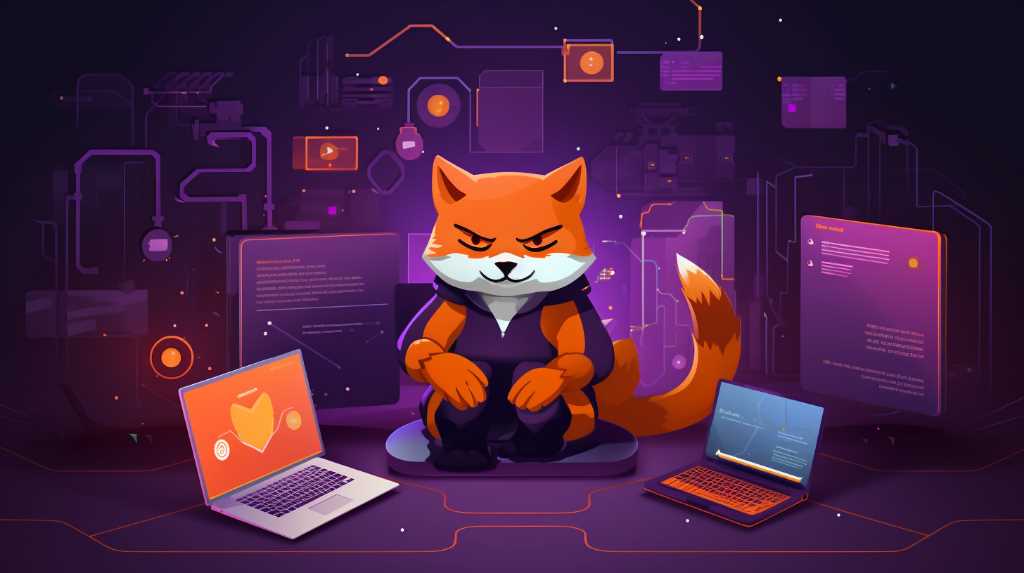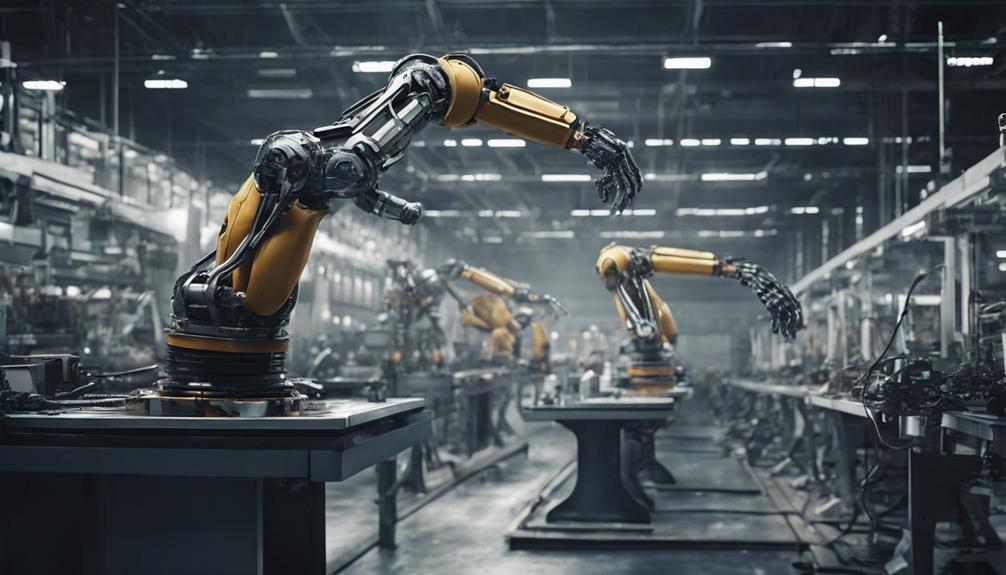The continuous discussions and contemplations among technology enthusiasts have been sparked by the ongoing integration of artificial intelligence into the programming world. With the constant advancement of AI capabilities, there is a prevalent question concerning its potential to entirely replace programmers.
The intricate dance between human creativity and AI automation is a complex one, stirring curiosity about the future landscape of software engineering. In a world where lines between human and machine contribution blur, understanding the nuances of this evolving relationship becomes paramount for professionals navigating the ever-changing tech industry.
Key Takeaways
- AI augments programming tasks, not replaces programmers.
- Automation streamlines coding, enhancing productivity.
- AI drives algorithm evolution, improving efficiency.
- Collaboration with AI enhances software development processes.
AI's Impact on Programming Roles
AI's transformational impact on programming roles is reshaping the landscape of software development by revolutionizing traditional coding practices. Artificial Intelligence (AI) is playing a pivotal role in automating tasks that were once manually intensive for programmers. By utilizing AI tools like ChatGPT-3, programmers can significantly reduce the time spent on repetitive coding tasks, allowing them to focus on more complex problem-solving aspects. These AI tools not only assist in code writing but also excel in debugging and providing insightful suggestions, ultimately enhancing productivity in software development processes.
Moreover, AI's capability in accurate bug detection and fixing has been instrumental in improving the overall quality of software products. While AI can predict potential issues in code, it is important to note that AI lacks the creative and innovative thinking capabilities inherent in human programmers. Therefore, AI's impact on programming roles is more about augmenting and enhancing the work of programmers rather than outright replacing them. This dynamic shift signifies a collaborative future where AI and programmers work together synergistically to achieve greater efficiency and effectiveness in software development.
Automation in Coding Tasks

The integration of artificial intelligence in programming workflows has brought forth a significant shift towards automation in coding tasks, revolutionizing the efficiency and productivity of software development processes. AI plays a crucial role in automating repetitive tasks, allowing programmers to focus on more complex and creative aspects of software development.
Automation tools like GitHub Copilot provide real-time code suggestions, aiding in the generation of code and enhancing the coding process speed. By utilizing AI to automate coding tasks, programmers can streamline their workflow, improve productivity, and achieve higher efficiency levels in software engineering endeavors.
AI not only assists in handling routine coding activities but also suggests code improvements, enabling developers to enhance the quality of their work. Embracing automation in coding tasks with AI empowers programmers to dedicate their time and expertise to solving intricate problems and innovating within the realm of software development.
Evolution of Algorithm Generation
Amid technological advancements, the paradigm shift in algorithm generation has been propelled by the integration of artificial intelligence, marking a significant evolution in the creation of complex algorithms.
AI tools like evolutionary algorithms and neural networks play pivotal roles in generating innovative algorithms. Machine learning algorithms optimize and improve the algorithm generation processes, ensuring the creation of efficient and effective solutions.
Through AI-driven algorithm generation, the speed and efficiency of creating algorithms surpass manual coding methods, leading to enhanced productivity and innovation in software development.
- AI tools such as evolutionary algorithms and neural networks are instrumental in generating innovative algorithms.
- Machine learning algorithms optimize and improve the algorithm generation processes.
- AI-driven algorithm generation enables faster and more efficient creation of algorithms compared to manual coding.
- The integration of AI enhances productivity and fosters innovation in the realm of software development.
Enhancing Software Development Processes

Enhancing the efficiency of software development processes through the integration of artificial intelligence technologies has become a cornerstone of modern technological advancement. AI plays a vital role in automating repetitive coding tasks, freeing up programmers to focus on more complex problem-solving. This automation also leads to improved accuracy in bug detection and fixing, ultimately enhancing the overall quality of software products. Moreover, AI's predictive analysis capabilities enable teams to anticipate and address potential issues before they escalate, facilitating proactive problem-solving and smoother project delivery.
Collaboration between AI systems and programmers is pivotal in streamlining project estimation processes. By leveraging AI's data processing capabilities, teams can generate more precise and reliable project timelines. This collaborative approach not only enhances accuracy but also boosts efficiency in project planning and execution. The integration of AI in software development processes not only optimizes efficiency but also fosters a more collaborative environment between human developers and intelligent systems, driving innovation and productivity in the field.
Programmer Adaptation Strategies
Building on the intersection of AI and software development efficiency, programmers must strategically adapt by embracing AI technologies to remain competitive in the rapidly evolving industry landscape.
- Continuous Learning: Programmers can develop expertise in AI technologies by continuously learning and implementing machine learning concepts to integrate AI tools effectively into their workflow.
- Understanding Limitations: Recognizing AI's limitations in creativity and problem-solving is crucial. This understanding guides programmers to leverage AI as a supportive tool rather than a complete replacement for human intelligence.
- Collaborative Approach: Collaboration with AI systems can significantly enhance programmers' efficiency in various processes such as coding, testing, and debugging.
- Upskilling and Awareness: Staying updated on emerging technologies, especially AI advancements, is vital for programmers to thrive in the changing landscape and remain relevant in the future of programming.
Frequently Asked Questions
Are Programmers Going to Be Replaced by Ai?
Programmers are unlikely to be fully replaced by AI, as the latter's current limitations in creativity and nuanced understanding hinder complete autonomy in complex coding tasks. Collaboration and augmentation between programmers and AI are more probable outcomes.
Can AI Replace Game Programmers?
In the realm of game development, the intricate blend of creativity, design, and storytelling necessitates the nuanced touch of human programmers. Although AI can enhance efficiency in certain tasks, the unique skills of game programmers remain irreplaceable.
Will AI Replace Programmers 2030?
AI is not expected to fully replace programmers by 2030. While AI can automate some coding tasks, human creativity and problem-solving remain critical in programming. The relationship between AI and programmers is one of collaboration and augmentation.
What AI Won't Replace in Your Programming?
In programming, AI cannot replace the human elements of creativity, intuition, and problem-solving. These essential skills, combined with innovative thinking, set programmers apart. AI lacks the capacity to replicate these qualities, ensuring human programmers remain invaluable.
Conclusion
In conclusion, the integration of AI in programming roles resembles a double-edged sword – sharp and cutting, yet with the potential to refine the craft. As automation and predictive capabilities advance, software engineers must adapt to these changes to remain competitive in the ever-evolving technology landscape.
Like a puzzle waiting to be solved, the synergy between AI and human expertise holds the key to unlocking new possibilities in software development.









